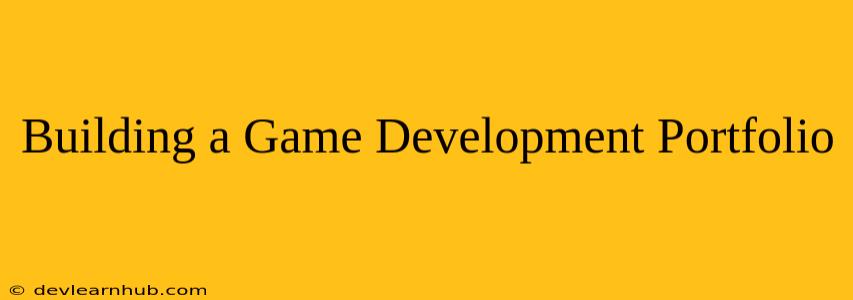Why is a Portfolio Important?
A portfolio is your showcase of skills and abilities. It demonstrates to potential employers what you can do and how you can contribute to their team. For game developers, a strong portfolio is crucial for landing jobs, securing freelance gigs, or even gaining recognition in the industry.
What to Include in Your Portfolio
Your portfolio should include projects that highlight your skills and the types of games you want to create. Consider these elements:
1. Completed Games
- Variety: Show a range of genres, gameplay mechanics, and platforms.
- Quality: Focus on polished, playable games with well-designed visuals, sound, and gameplay.
- Technical Skill: Showcase your proficiency in programming, game engines, and tools.
- Creativity: Demonstrate your unique ideas and artistic vision.
2. Game Prototypes
- Experimentation: Include prototypes of unfinished games or experimental projects.
- Technical Exploration: Showcase your ability to learn and adapt to new technologies.
- Problem-Solving: Illustrate your ability to solve complex technical challenges.
3. Art and Design Assets
- Visual Style: Display your visual style and artistic skills through concept art, character designs, environment art, or UI/UX design.
- Technical Expertise: Showcase your proficiency in graphic design software, 3D modeling, animation, and other relevant tools.
4. Technical Skills
- Programming Languages: Include examples of your code, libraries you've used, and coding challenges you've solved.
- Game Engines: Showcase your experience with engines like Unity, Unreal Engine, Godot, or others.
- Tools and Technologies: Demonstrate your proficiency in tools like Photoshop, Maya, Blender, or other software relevant to your skills.
Tips for Building a Strong Portfolio
- Start Small: Don't wait for a perfect project. Start with smaller games, prototypes, or game design documents.
- Focus on Quality: Ensure your work is polished, playable, and visually appealing.
- Tell a Story: Describe your projects in detail, explaining your design choices, challenges, and solutions.
- Be Original: Showcase your creativity and unique vision.
- Update Regularly: Keep your portfolio updated with new projects and skills.
- Get Feedback: Seek feedback from other developers, mentors, or peers.
- Promote Your Work: Share your portfolio on social media, online platforms, or game development communities.
Conclusion
A strong game development portfolio is essential for landing your dream job or getting recognized in the industry. By showcasing your skills, creativity, and technical prowess, you can open doors to exciting opportunities and achieve your game development goals.
